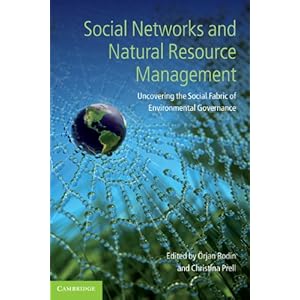Below is a guest post from Megan Meacham, a former Masters student at the Stockholm Resilience Centre, on the final day of the recent Stockholm Nobel laureate symposium.
 The final day of the symposium, titled The Stockholm Dialogue on Global Sustainability – Seizing Planetary Opportunities, gathered some of the world’s leading scientists, policymakers, entrepreneurs and representatives from civil society together with a broad audience to have a discussion of the solutions, actions and leadership necessary for global sustainability.
The final day of the symposium, titled The Stockholm Dialogue on Global Sustainability – Seizing Planetary Opportunities, gathered some of the world’s leading scientists, policymakers, entrepreneurs and representatives from civil society together with a broad audience to have a discussion of the solutions, actions and leadership necessary for global sustainability.
The event and venue itself aimed to represent the holistic multi-perspective approach needed for global sustainability. The dialogue was held in the Royal Dramatic Theatre, the most prestigious and opulent theater in Sweden. Marie-Louise Ekman, director of the theater, emphasized theater as an infrastructure in society, guiding and reflecting society and necessary for a secure and prosperous world. Ms. Ekman and Sten Nordin, mayor of Stockholm, both stressed the key relationship between art and science. Art is a way for society to reflect on itself, challenge itself and aspire. Art can activate peoples’ emotions. Science can use this to motivate action. A common theme of the dialogue was the question of communication. How to translate scientific findings and knowns into societal understanding and action? Art is a powerful tool, exemplified on this occasion by the reading of poetry by the Nobel Laureate Wislawa Szymborska.
General themes present throughout the day’s discussion were taken from “The Stockholm Memorandum: Tipping the Scales towards Sustainability,” the recommendations developed over the previous days of the Nobel Laureate Symposium. Questions of social equality, redefining growth and development, leadership, the need for a ‘mind-shift’ in society along with communication between science and society were discussed to varying degrees in all the talks and panel discussions.
Generally agreed upon, was the need for new metrics to gauge and discuss growth. Growth domestic product (GDP) is a narrow index that does not represent the wellbeing, social equality or trajectory of society. Trading easily quantifiable indexes for more representative ones will help to falsify the idea that quality of life is based on material aggregation.
Development was discussed as an opportunity for focusing societal aspirations toward more qualitative and long-term prosperity goals. According to Pavan Sukhdev from UNEP’s Green Economy Initiative, developing countries are leading the way in terms of experimentation, innovation and action when it comes to prevention and mitigation of climate change and its effects. Encouraging and rewarding this flexibility and creativity is one way to alter the trajectory of development.
Fostering a transition in society in a way that prioritizes global sustainability requires a mind-shift; focusing society towards understanding the risks facing humanity and creating conditions conducive to innovation and change. A general sense of urgency was express by all the speakers in regards to the need for this change. Considering how to facilitate this mind-shift, emphasis was put on strengthening communication and fostering leadership.
Peter Agre, Nobel Laureate for chemistry in 2003, argued that the accessibility of the science on global sustainability lies in the principals. It is the details that are complicated. Katherine Richardson, Professor of biological sciences at the University of Copenhagen, made a similar point calling for the communication of issues through headlines that people understand. American ambassador to Finland, Bruce Oreck, argued that the terminology used in the discussion of global sustainability can be discouraging action. Replacing the term ‘challenge’ with ‘opportunity’, for example, can alter how people perceive the issue.
Ultimately, the discussion ended on the role of leadership in times of rapid global change. Sunita Narain, director general of the Centre for Science and Environment, argued that at the international scale leadership was lacking from the developed nations. She suggests that they are not taking responsibly for their role in making structural changes for global sustainability and instead practicing, “creative carbon accounting.” On the national level, Will Steffen gave a positive example of leadership from the Australian cross-party panel on climate change. That have four sectors (science, economics, industry, and social equity rights) represented with equal voting rights to make the national decisions on climate change. On the individual level Frances Westley argued most adamantly for people to, “Start where you are and do what you are good at.” It is policy’s role to provide the incentives or sanctions that afford opportunities and an innovative environment. They ended by suggesting to everyone to take risks and not to be afraid, because guilt and fear will not help the transition to global sustainability.
The program and list of participants can be found at http://globalsymposium2011.org/ .



 On March 8, 2011, the
On March 8, 2011, the 